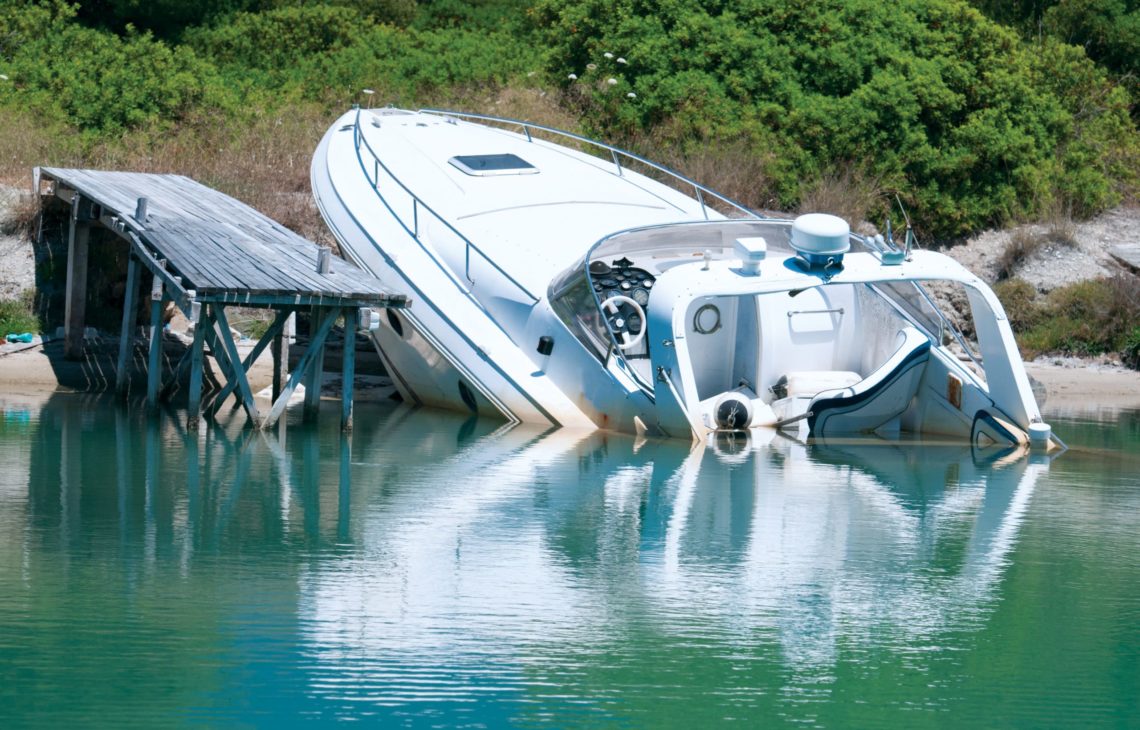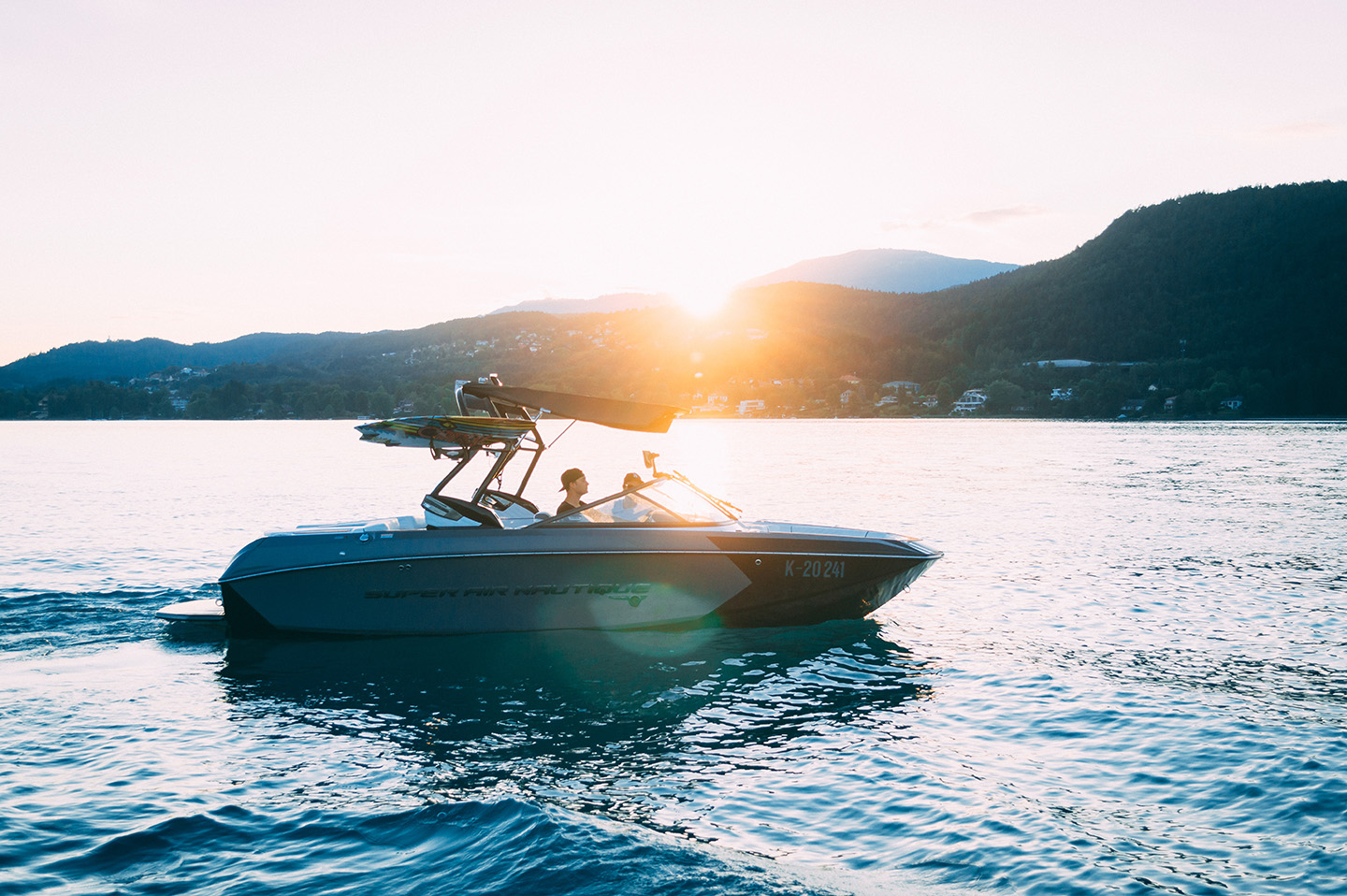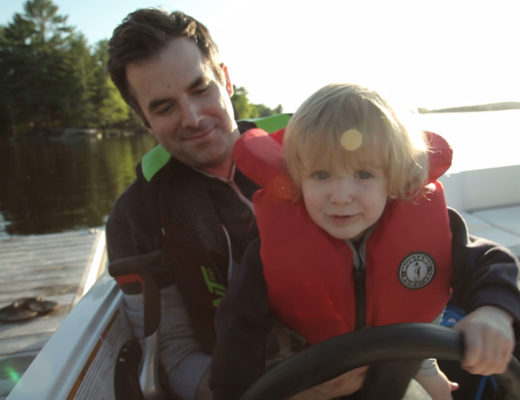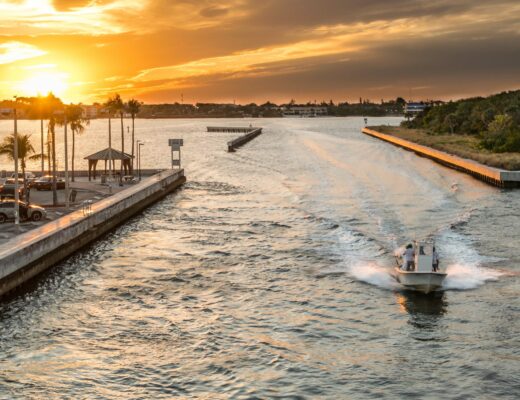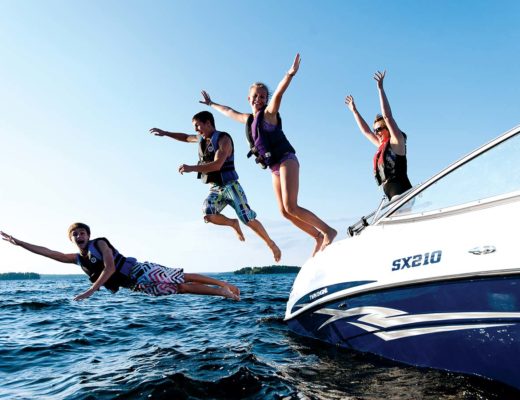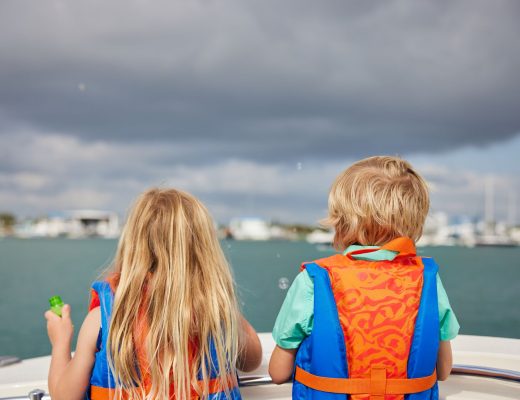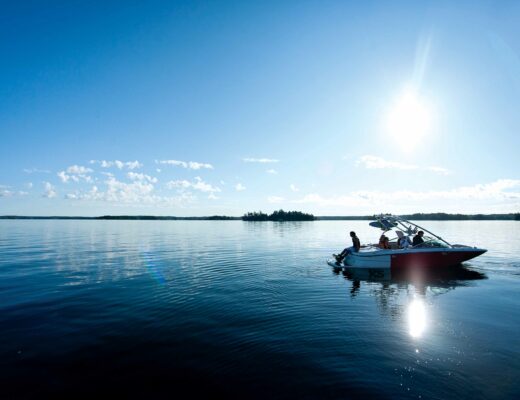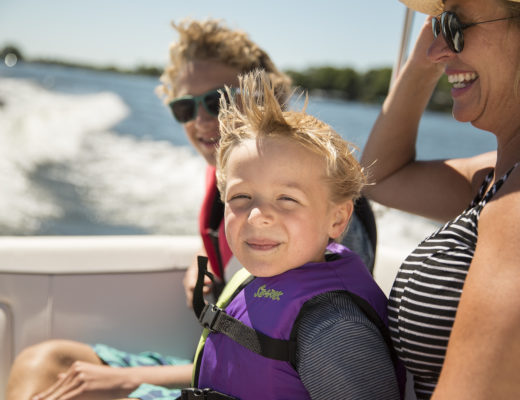Drinking and boating is a terrible – and unsafe – combination. It’s as dangerous as drinking and driving and can lead to serious boating accidents and injuries for yourself or others on your boat or nearby.
Even if you avoid an accident and arrive back at the dock safely, Canadians can face significant penalties if they’re caught boozing and boating. Each territory has its own rules and regulations, but they all remain consistent on one thing: operating a boat while drinking is against the law.
It’s unsafe and can be costly if you’re caught.
Ready to learn more about the rules around boating and alcohol in Canada? Keep reading!
Can I Drink Alcohol on a Boat in Canada?
Drinking and boating — what are the rules? We hear from a lot of Canadians who wonder what the laws are for boating and alcohol in their province or territory. So, let’s clear the fog and get you on the right track to stay safe (and legal) while boating anywhere in Canada.
It is an offence under the Criminal Code of Canada to operate a boat if you’re impaired by drugs or alcohol. You are “under the influence” if you have a Blood Alcohol Concentration (BAC) in excess of 80mg or 0.08%. Your BAC level is determined with a breathalyzer or blood test.
Sure, people’s tolerance level to alcohol may vary, but this number does not.
80mg = drunk boating. And for good reason. 65% of the boating-related accidents in Canada involve alcohol consumption.
What Are the Penalties for Drinking and Boating?
In Canada, if you’re convicted of boating under the influence of alcohol or drugs, the minimum penalties are:
- 1st Offence: A minimum fine of $600
- 2nd Offence: A minimum fine of $600 and at least 14 days in prison.
- 3rd or Subsequent Offence: A minimum fine of $600 and at least 90 days in prison
Note: these are just the minimums. The maximum fines and penalties will vary by province.
When Can I legally Drink Alcohol on a Boat in Canada?
Boat passengers may legally consume alcohol on board a boat in Canada if the boat:
- Has permanent cooking facilities
- Is equipped with permanent sleeping facilities
- Has a permanent toilet
- The boat is anchored or secured alongside a dock
Most yachts and houseboats meet these requirements, but not all boat types will.
As the boat operator, it is your responsibility to make sure your boat meets these requirements before anyone opens any beer or liquor. Additionally, it’s your responsibility to stay sober to make sure everyone gets home safe.
Remember, drinking and boating is always illegal. However, the rules for legal alcohol consumption and transport vary by province.
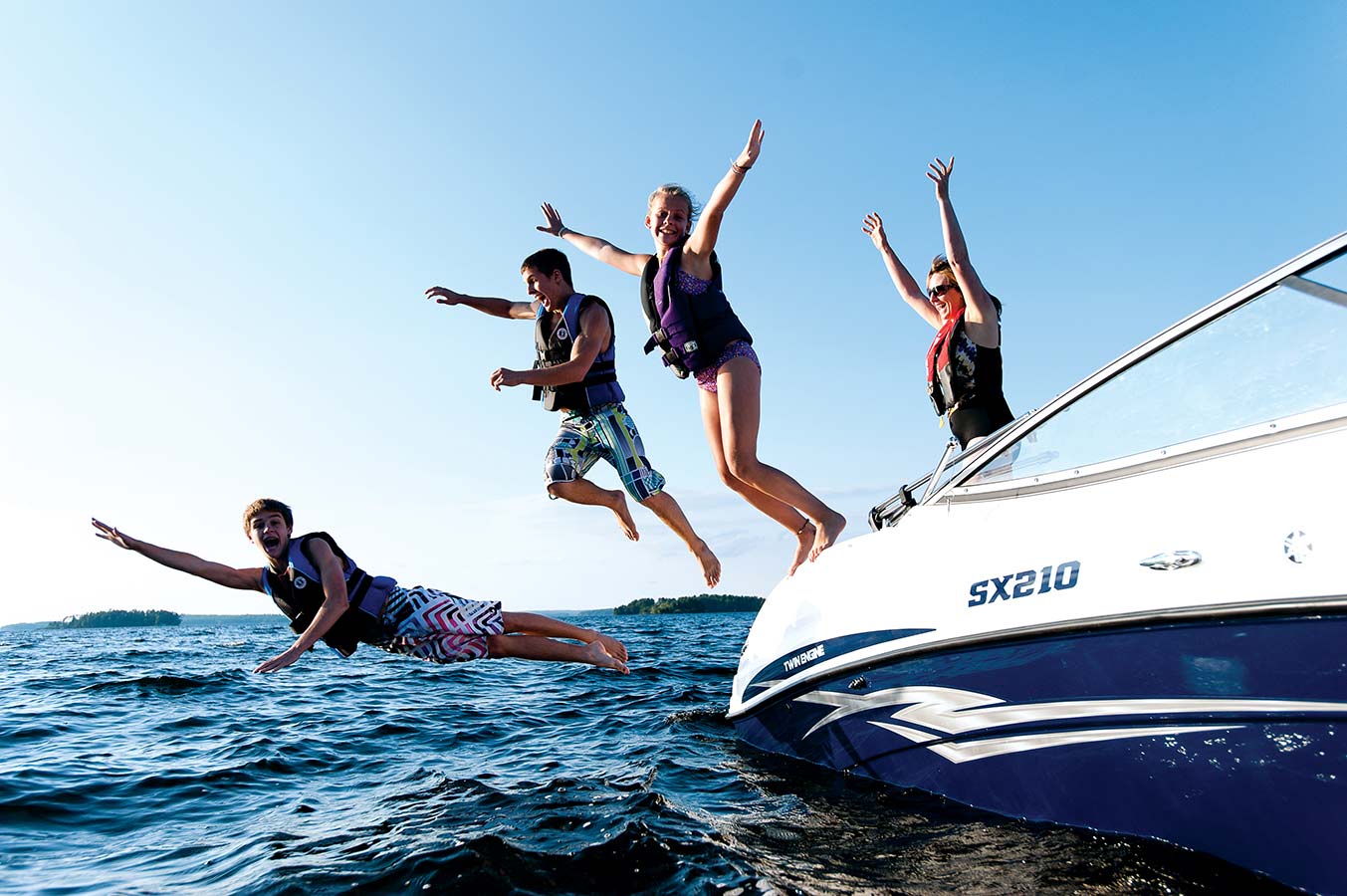
What Are The Laws For Drinking and Boating In My Province?
Depending on where you live and boat, the laws about operating a boat while drinking may differ. Here’s a brief overview of each province and their regulations.
Alberta
In Alberta, the fines and penalties for boating under the influence are the same as for driving a motor vehicle. The penalties increase based on a driver’s BAC level and if it’s a first, second, or third offence. For example, for a first offence with a BAC of .05 to .08, you’ll face a $300 fine plus a victim fine surcharge of 20%. You’ll also receive a 3-day license suspension and a 3-day boat seizure.
You can drink alcohol on your boat if it is equipped with a permanent toilet, cooking facilities, and sleeping facilities. However, the boat must be anchored or docked.
Contact Alberta’s Royal Canadian Mounted Police (RCMP) for more info about the laws for boating and alcohol in Alberta.
Ontario
In Ontario, the Ministry of Transportation assesses fines and penalties for a person drinking and driving a boat as those for a person who drinks and drives.
Ontario boaters convicted of operating a boat under the influence may have their driver’s license suspended for a minimum of one year. Ontario’s Ignition Interlock Program also applies to those convicted of drunk boating.
If your anchored or docked boat has a permanent toilet, cooking facilities, and sleeping facilities, boat passengers may legally consume alcohol.
Contact the Ontario Provincial Police (OPP) for more information about the laws for boating with alcohol in Ontario.
Quebec
As in other provinces, Quebec applies the same fines and penalties for driving a boat while under the influence of alcohol or drugs as if you are operating a motor vehicle under the influence.
However, boaters in Quebec can carry open alcohol on boats while the boat is underway. Additionally, the boat operator may consume alcohol if their BAC level is not more than the legal limit of 80mg.
Contact the Sûreté du Québec (SQ) for more information about Quebec’s laws for boating and alcohol.
British Columbia
In B.C., a person who operates a boat under the influence will face the fines and penalties. These are the same fines as those that apply to a person who operates a motor vehicle under the influence.
However, alcohol may be legally consumed if the boat:
- Is licensed for alcohol consumption AND;
- Has permanent toilet, cooking facilities and sleeping facilities AND
- Is anchored or docked.
Contact B.C.’s, RCMP for more information about the laws for boating with alcohol in this province.
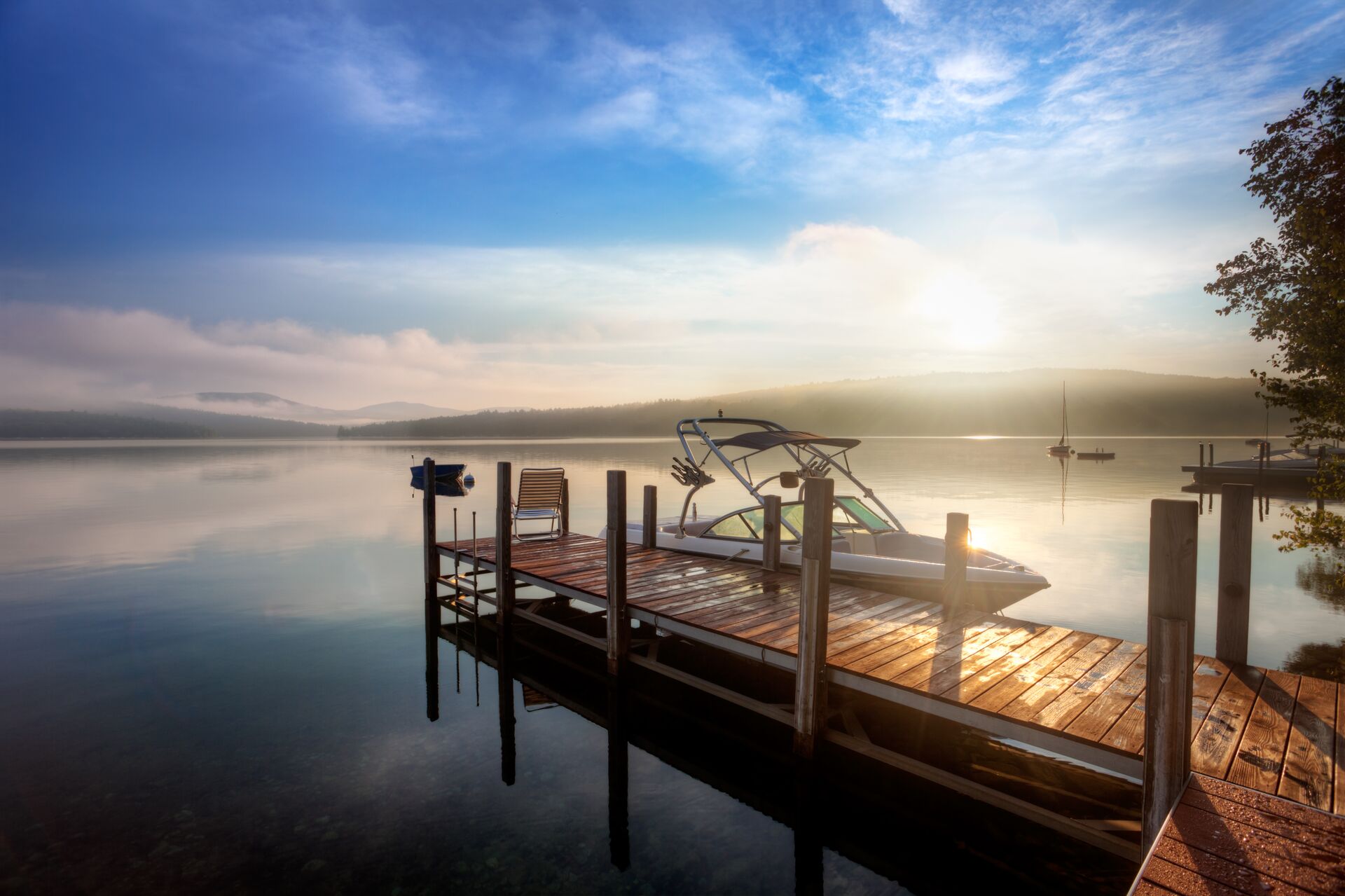
Saskatchewan
You guessed it: a person convicted of operating a boat under the influence will face the same fines and penalties that apply to motor vehicle operators who drink and drive.
However, alcohol may be consumed on board a boat in Saskatchewan that is anchored or docked equipped with:
- a permanent toilet AND;
- cooking facilities AND;
- sleeping facilities
Contact Saskatchewan’s RCMP for more information about the laws for boating with alcohol in Saskatchewan.
Manitoba
In Manitoba, there are fines and penalties for operating a boat under the influence of alcohol or drugs. These match the fines and penalties for a person who drinks and drives.
Additionally, it is illegal to transport open alcohol on boats in Manitoba.
Boat passengers may only consume alcohol on board a boat in Manitoba if the boat is anchored or docked and has a permanent toilet, cooking facilities, and sleeping facilities.
Contact Manitoba’s RCMP for more information about the laws for boating with alcohol in Manitoba.
New Brunswick
In New Brunswick, as with most of the other provinces, there is no difference between drunk driving and drunk boating. The fines and penalties for driving a boat while impaired by alcohol or drugs are the same as those applicable to motor vehicle operators.
Boat passengers may only consume alcohol on a boat if to boat is anchored or docked. Additionally, the boat must be equipped with permanent sleeping, cooking and toilet facilities.
Reach out to New Brunswick’s RCMP for more information about the laws for boating with alcohol in New Brunswick.
Newfoundland and Labrador
In Newfoundland and Labrador, the fines and penalties for driving a boat while impaired are the same as those applicable to driving a motor vehicle while under the influence.
Boat passengers may only consume alcohol on a boat in Newfoundland and Labrador if the boat is anchored or docked. Additionally, the boat must have permanent sleeping, cooking and toilet facilities.
Contact the Newfoundland and Labrador RCMP for more information about the laws for boating with alcohol in this province.
Nova Scotia
In Nova Scotia, the fines and penalties for driving a boat while intoxicated are the same as those applicable to operating a motor vehicle while impaired.
However, boat passengers can consume alcohol on board a boat in Nova Scotia so long as the boat has a permanent toilet, sleeping facilities, and cooking facilities. Additionally, the boat must be docked or anchored.
Reach out to the Nova Scotia RCMP for more information about the laws for boating with alcohol in that area.
Prince Edward Island (PEI)
In PEI, once again, the fines and penalties for driving a boat while impaired are the same as those applicable to operating a motor vehicle while under the influence of alcohol or drugs.
Boat passengers may legally consume alcohol on board a boat in Prince Edward Island so long as the boat has permanent cooking facilities, sleeping facilities, and a toilet, and it is anchored or docked.
Contact the Prince Edward Island RCMP for more information about the laws for boating with alcohol in PEI.
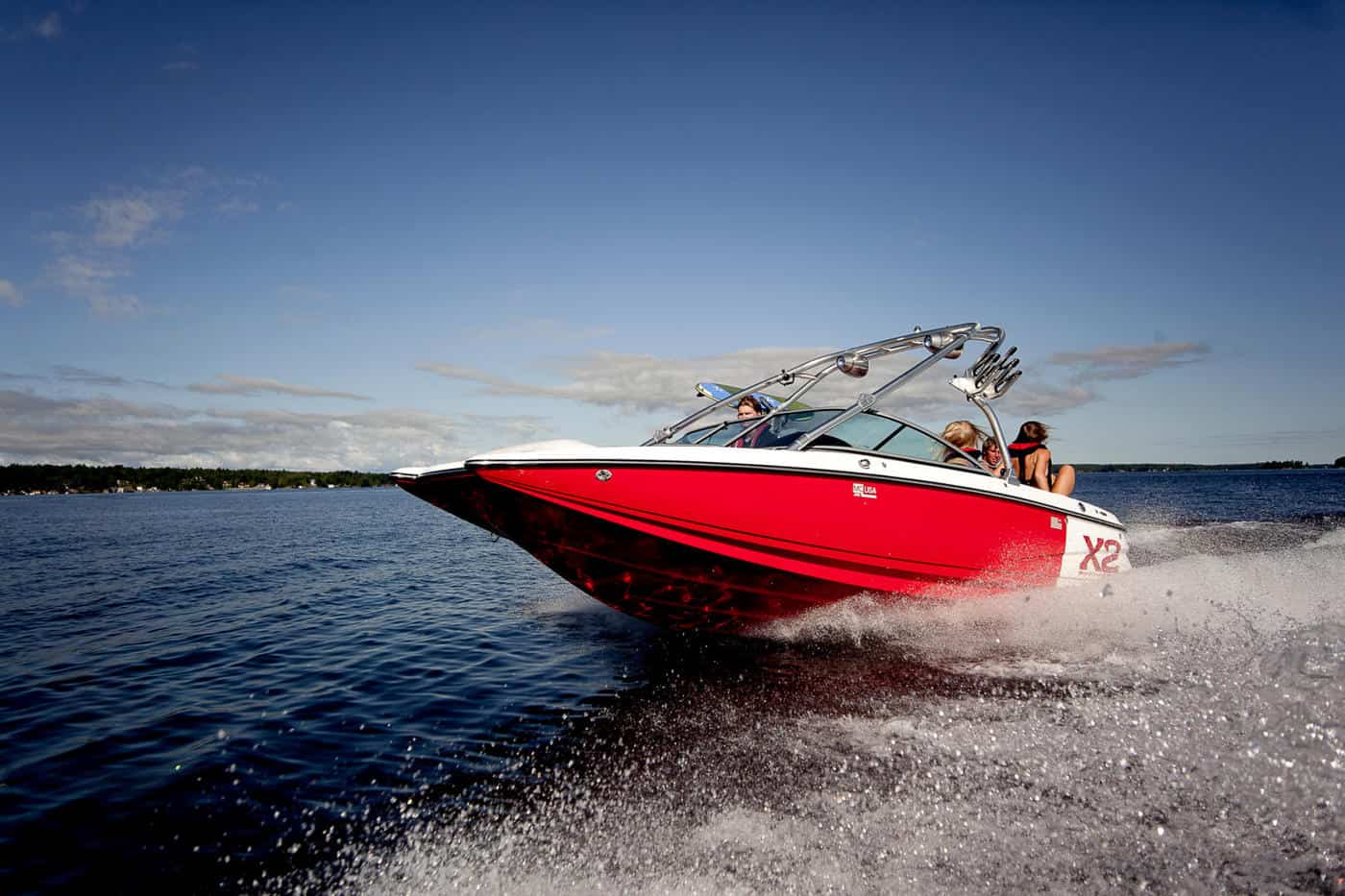
Northwest Territories (NWT)
In the NWT, the fines and penalties for driving a boat while boozing are also the same as those applicable to operating a motor vehicle while impaired.
However, passengers may legally consume alcohol on board a boat in the NWT as long as the boat has a permanent toilet, cooking facilities, sleeping facilities. It must also be anchored or docked.
Contact the Northwest Territories RCMP for more information about the laws for boating with alcohol in the NWT.
Yukon
In the Yukon, the fines and penalties for operating a boat while under the influence are the same as those for operating a motor vehicle while under the influence.
However, passengers can have a drink on board a boat in the Yukon as long as there is a permanent toilet, cooking facilities, sleeping facilities and the boat is anchored or docked.
Contact the Yukon RCMP for more information about the laws for boating and boozing in the Yukon.
Nunavut
In Nunavut, a person who is convicted of drinking and boating will face the same fines as a person who drinks and drives a car.
Boat passengers can have alcohol on board a boat in Nunavut if the boat has cooking facilities, a permanent toilet, and sleeping facilities. In addition, the boat must be docked or anchored.
Reach out to the Nunavut RCMP for more information about the laws for boating with alcohol in this area.
Remember, boating laws change over time. Check with your provincial police for the alcohol laws that apply to your type of boat, in your province.
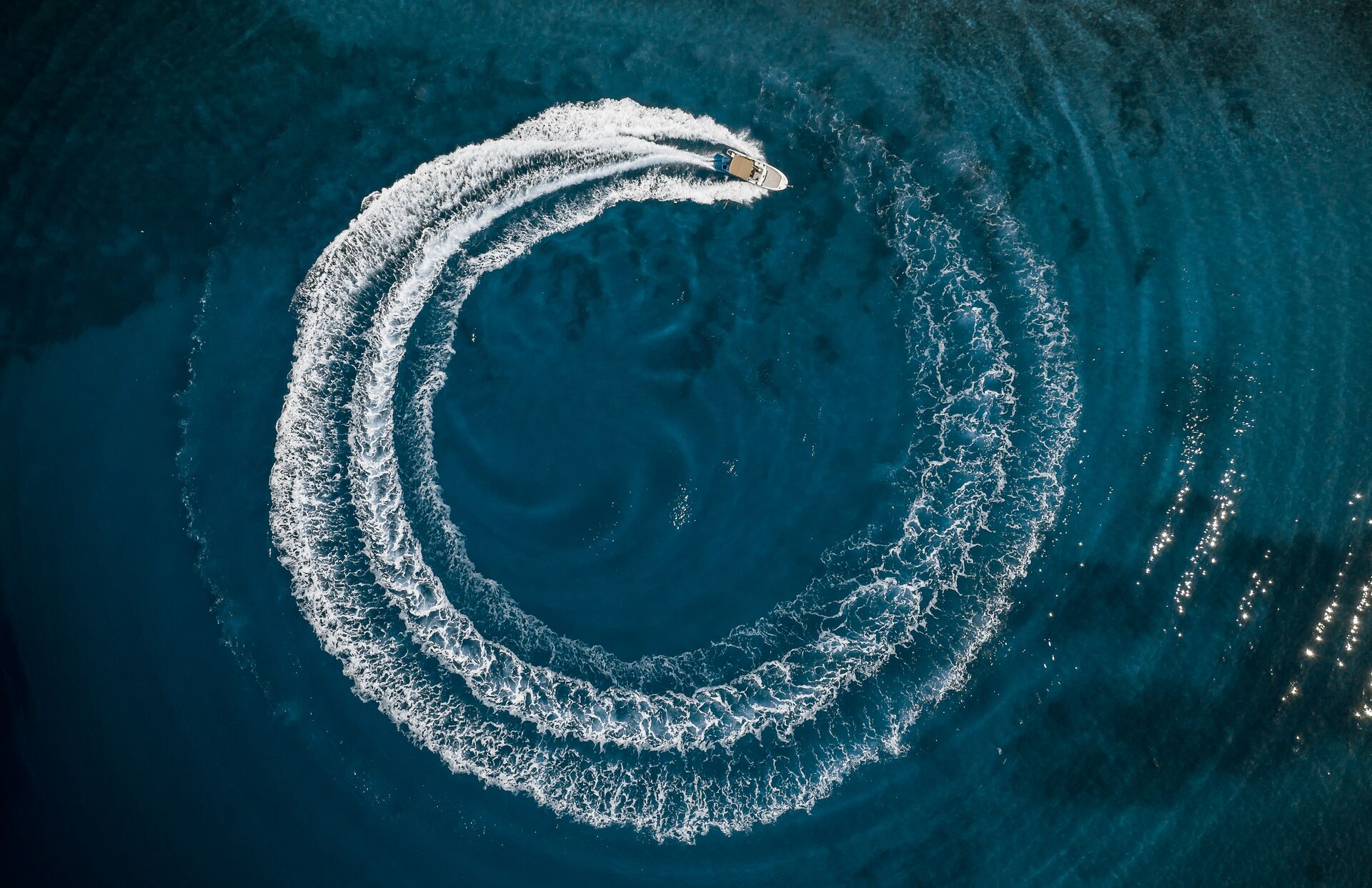
What Are the Effects of Alcohol when Boating?
There are numerous negative effects that result from consuming alcohol while you boat, including the following issues.
Boater Fatigue
This issue is caused by a combination of the hot sun, wind, noise, vibration and the motion of the boat. These factors quadruple the effects of alcohol on boaters.
Alcohol also slows your swallowing and breathing reflexes, and makes you more likely to drown if you fall overboard.
Dehydration
Heat and sun cause dehydration as the body tries to cool itself by sweating. A dehydrated person feels the effects of alcohol more quickly.
Additionally, mildly dehydrated people absorb alcohol more quickly into their system and will have a higher blood alcohol concentration.
Dehydration causes the body to lose fluids, which leads to stomach cramps while the person attempts to swim and stay above water.
Other Negative Effects of Drinking and Boating
While boater fatigue and dehydration are bad enough, they’re not the only negative effects of drinking on a boat. You may also experience these additional dangerous issues.
- Diminished judgment and ability to process information. Alcohol makes you less attentive.
- Slower reaction and reflex response times.
- Reduced motor skills, peripheral vision, and balance. This puts you at greater risk of falling overboard.
- Poorer depth perception, vision, and focus.
- Inner ear disturbances. This will make it harder to distinguish the water surface if you fall overboard.
- Accelerated Hypothermia, since alcohol will lower the body’s resistance to cold.
Bonus Safe Boating Tip: Consuming alcohol and not wearing a life jacket or PFD is a deadly combination. Even if you aren’t drinking, wear a life jacket! If you do decide to drink on the boat, wear the life jacket.
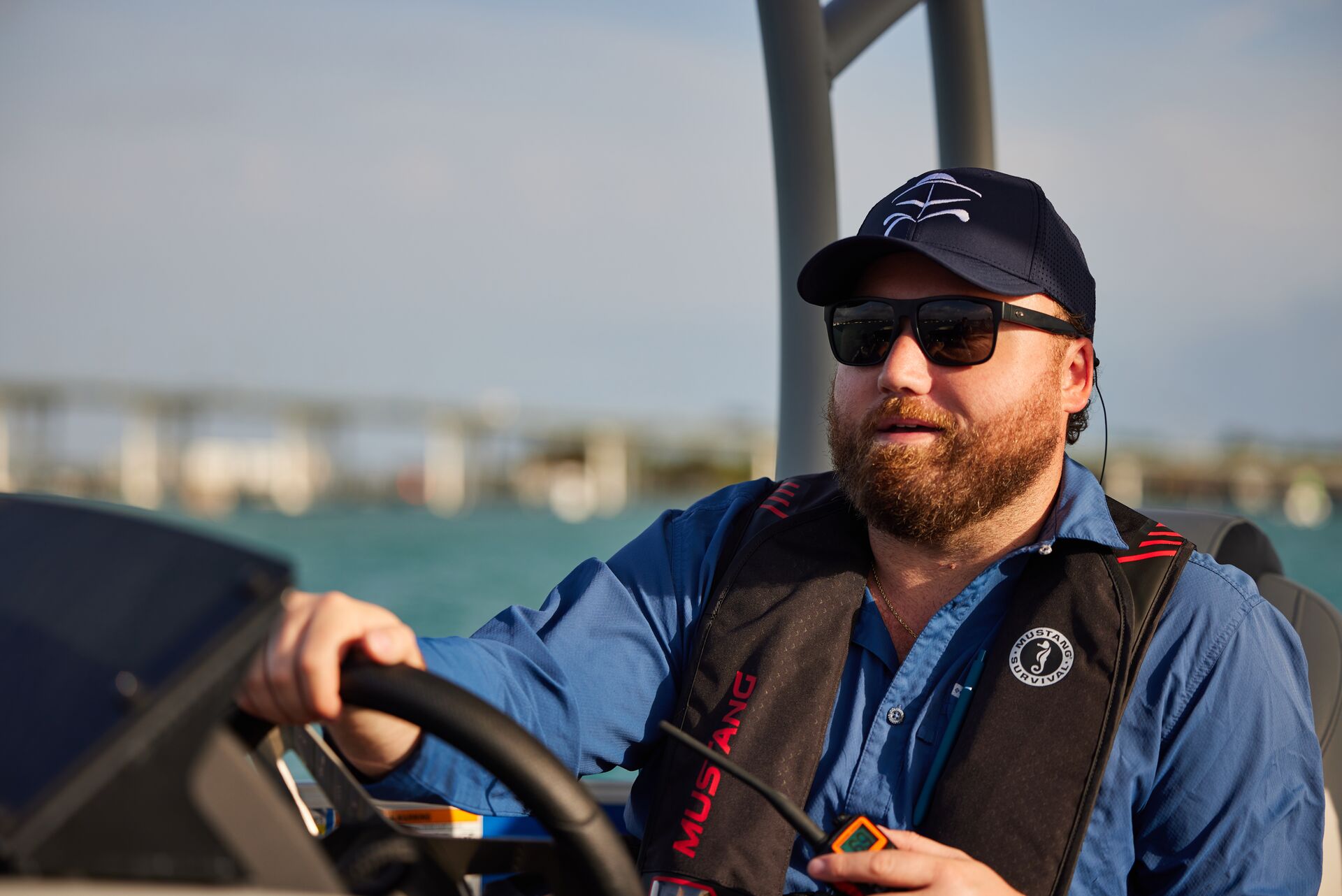
Learn More About Safe Boating with BOATsmart!
We’ve covered a lot of ground focused on drinking and boating today. We hope it’s clear that operating a boat while under the influence is not only dangerous but can also be costly and lead to significant penalties and fines. You’ll lose your freedom to drive a boat and enjoy the water — and that’s just the least of your worries.
However, alcohol on the water isn’t the only safety lesson you need before launching your next boating adventure. You need a complete understanding of how to stay safe, including the safety equipment your boat needs, navigating the right-of-way near other boaters, and what to do if something goes wrong.
We cover all of that (and more) in our Canada BOATsmart! course! Plus, we make it easy to learn the information you need to stay safe, pass your exam, and get your boating license in Canada. Get started today, and hit the water (safely) tomorrow!
Content most recently reviewed and updated August 8, 2024.
